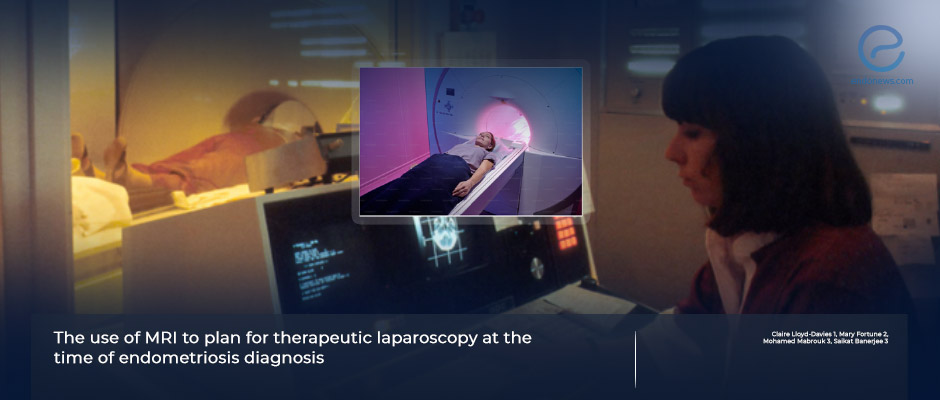Endometriosis treatment at diagnosis: Is it possible?
Feb 16, 2024
Study shows promising results with the use of MRI as a diagnostic tool before therapeutic laparoscopy
Key Points
https://drseckin.com/?s=laparoscopyHighlight
- Combining diagnosis and treatment in a single therapeutic laparoscopy may benefit patients with endometriosis, potentially avoiding the need for separate diagnostic procedures.
Importance
- Accurate identifıcation of endometriosis using MRI, along with pre-operative assessment and TVUS, is promising for improving patient care and reducing surgical risks associated with additional procedures.
What’s done here
- This is a retrospective cohort study aiming to assess whether patients with endometriosis should undergo therapeutic laparoscopy directly, rather than a separate diagnostic laparoscopy.
- All patients who underwent laparoscopies over 4 years were evaluated.
- Data from patient records, including findings from pre-operative transvaginal ultrasound (TVUS), MRI, and laparoscopic surgery, were collected.
- The #ENZIAN scoring system was used to score endometriosis.
Key results
- A total of 143 patients received therapeutic laparoscopies at the time of endometriosis diagnosis, with none undergoing separate diagnostic procedures.
- MRI demonstrated high sensitivity (92%) but lower specificity (42%) for identifying endometriosis, indicating its effectiveness in ruling out the condition.
- MRI showed similar results in differentiating superficial and deep disease.
- #ENZIAN scoring showed higher specificity and negative predictive value when compared to MRI findings, suggesting its utility in confirming endometriosis.
Lay Summary
For most cases of endometriosis, a diagnostic laparoscopy followed by a therapeutic laparoscopy is recommended by The National Institute for Health and Care Excellence. Hypothesizing that patients with endometriosis might benefit from receiving only a therapeutic laparoscopy, combining diagnosis and treatment in one procedure, potentially avoiding the need for separate diagnostic interventions, Lloyd-Davies et al. from Cambridge, United Kingdom conducted a retrospective cohort study. The study was published in the November 2023 issue of the Clinical Medicine Journal (ClinMed London).
A total of 372 patients who underwent laparoscopy from December 2017 to May 2021 were divided into two groups; those who underwent diagnostic laparoscopy and those who had therapeutic laparoscopy at diagnosis. Data from patient records, including findings from pre-operative transvaginal ultrasound (TVUS), MRI, and laparoscopic surgery, were collected. Endometriosis was scored using the #ENZIAN system, allowing binary scoring based on location. The study evaluated whether pre-operative imaging accurately represented endometriosis detected during surgery.
143 patients did not undergo a diagnostic laparoscopy; instead, all received therapeutic laparoscopies at diagnosis, with 139 having complete surgical records. Of these, 35 had negative and 95 had positive therapeutic laparoscopies with 90 of them having MRI and laparoscopy data. MRI demonstrated a sensitivity of 92% and specificity of 42%, suggesting it's better for ruling out endometriosis, while #ENZIAN components showed higher specificity and negative predictive value.
The authors recommend using MRI, along with pre-operative assessment and TVUS, to identify endometriosis and its specific locations according to #ENZIAN scoring. They comment that this approach may allow for therapeutic laparoscopies at diagnosis, potentially eliminating the need for separate diagnostic procedures and reducing associated surgical risks. They conclude by adding that further analysis on the utility of MRI and TVUS is ongoing as additional patient data is collected.
Research Source: https://pubmed.ncbi.nlm.nih.gov/38182182/
endometriosis MRI magnetic resonance imaging laparoscopy

